How did you learn to cook? For many of us, chances are we were taught by a friend, a parent, or a grandparent. For Lisa Gross, founder and manager of New York City-based cooking program the League of Kitchens, she had to teach herself.
Gross grew up in the Washington D.C. area with a father of Hungarian Jewish descent, her mother a Korean American immigrant, and a maternal grandmother who was her primary caregiver who cooked Korean staples for the family. Gross often watched her grandmother sitting on their kitchen floor, chopping cabbage for kimchi and making fresh meals.
But whenever Gross expressed interest in learning to cook the Korean dishes she saw her grandmother make, her grandmother shooed her out of the kitchen saying, “You should go study because studying is more important.”
“She didn’t really value her own cooking skills,” Gross says. “She really wanted me to have an opportunity in education and professionally that she didn’t have.”
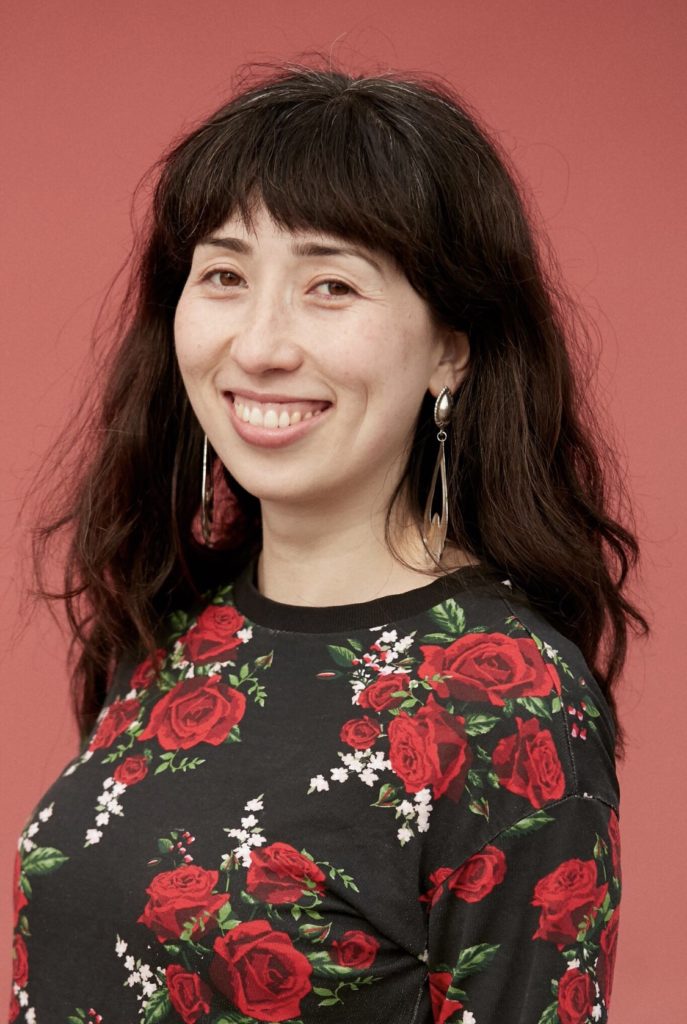
By the time Gross began cooking for herself in college, her grandmother had passed away. She turned to cookbooks and information online about Korean cuisine to teach herself what she could. While she enjoyed the food, she felt it lacked the intricacy she remembered in the food her grandmother prepared. “I realized so often there are so many details and strict ways of doing things that you really need to learn from a person,” Gross says.
Gross wished her Korean grandmother was still here to teach her in the kitchen. She found herself wondering, what if we all had Korean grandmothers to teach us to cook? Or Indian grandmothers, Uzbeki grandmothers, Bangladeshi grandmothers, and so on, for that matter? It is an idea Gross has held onto for years.
Later, after finishing her MFA at the School of the Museum of Fine Arts at Tufts University, she turned this question into the inspiration for the League of Kitchens, a cooking school with classes held in the home kitchens of twelve female, immigrant instructors. These home cooks and grandmother figures share their culinary traditions, including expert knowledge on food less commonly found in restaurants, along with the kind of family recipes typically shared only through oral tradition.
“I grew up in two cultures, being sort of an insider and outsider in both,” Gross says. “[I understood] the immigrant experience and the experience of being the child of an immigrant—and also being American, and being the child of an American on the other side.” The League of Kitchens, she says, embodies this duality and multiculturalism.
Gross explains she was inspired by New York City as much as her own desire to learn to cook from the best sources—immigrant grandmothers. “The thing I love most about New York City is really the incredible diversity of the city. It’s really not a city of separate immigrant enclaves,” Gross says, referencing the forced integration of subway travel or crowded streets.
But she still felt there was a missing link. “Though the city is so diverse, there are very few opportunities for meaningful interaction, connections or exchanges between immigrants and non-immigrants—or even between immigrants of different backgrounds,” Gross says. “Most interactions are really service-based; it’s the person at the bodega or the waiter at the restaurant or the person at the dry cleaners.”
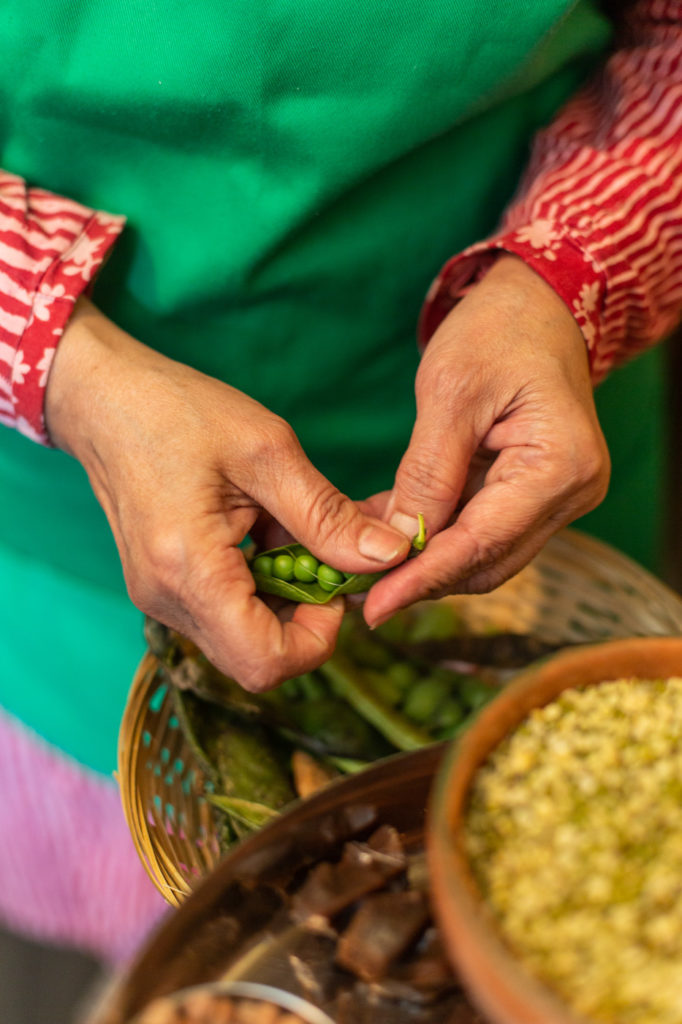
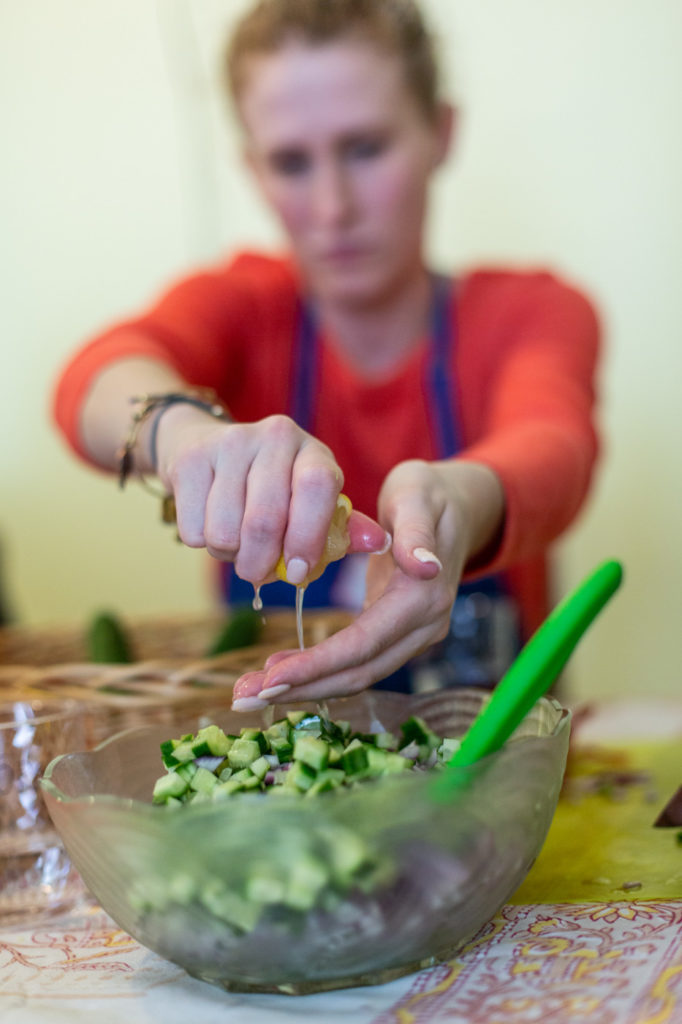
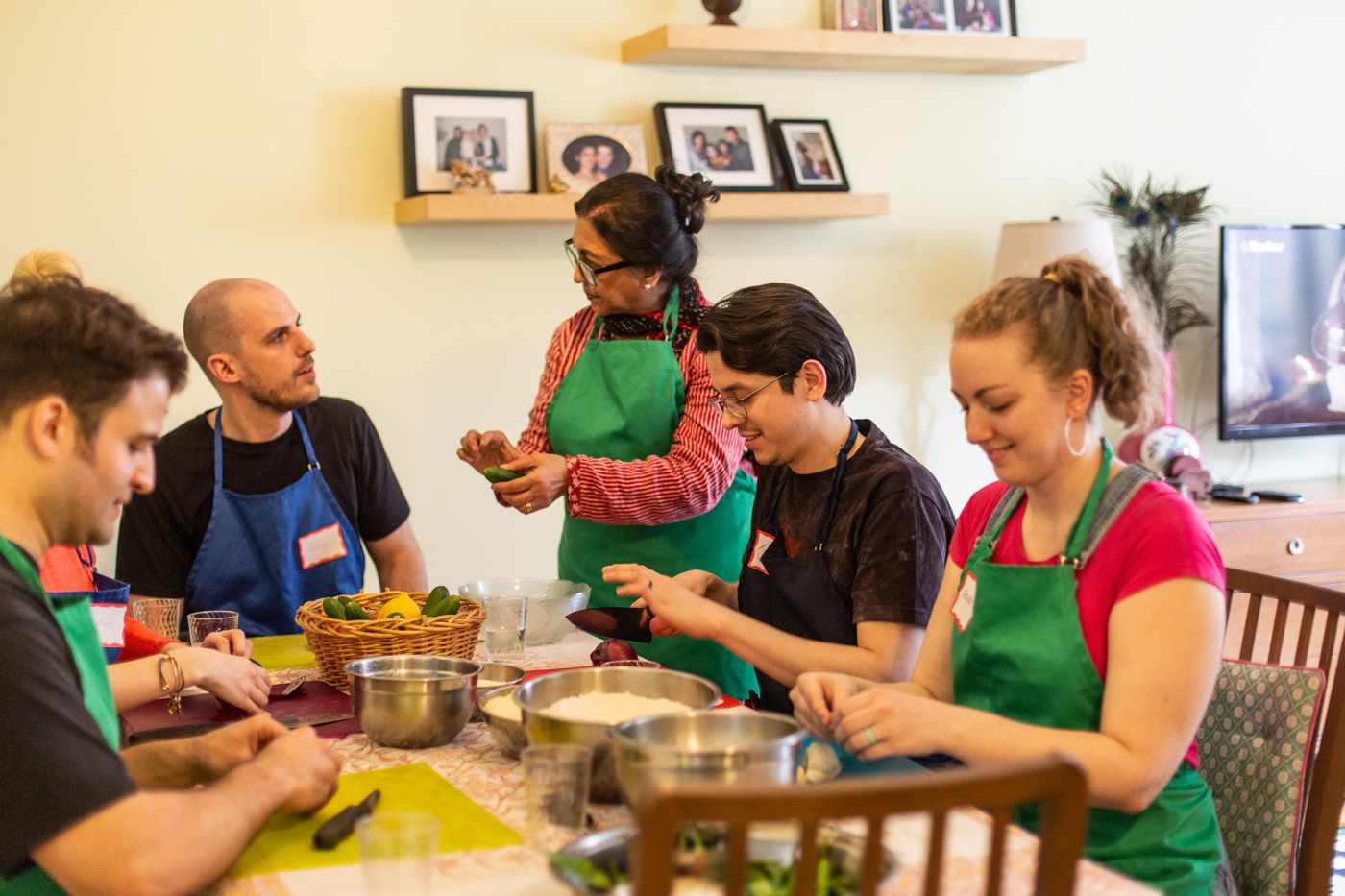
Gross went about finding women from all over the world to teach small cooking classes. She reached out to the Center for Family Life and met with some members of their catering collective who were immigrant women using their culinary knowledge to make a living. Gross began with a short-term pilot program to test out the idea of a cooking school, starting with two instructors who ran classes in their own kitchens.
Gross wanted the experience to be “just as much about creating this opportunity for meaningful, cross-cultural learning and exchange as it was about this exceptional eating and culinary education experience.” After she began the pilot project in the spring of 2013, Gross added four more instructors and turned the League of Kitchens into a small business, which she launched in February 2014.
Today, through the League of Kitchens’ twelve instructors of all different backgrounds, students can learn how to make Japenese okonomiyaki, Greek kourampiedes, Lebanese shish touk with toum, and more. Gross also seeks candidates who are warm, engaging, enjoy hosting, are “comfortable telling their story, talking to the media, and comfortable with hosting groups of American strangers in their homes,” she says.
While Gross has considered male applicants interested in becoming instructors, the strongest candidates thus far have been women. Gross feels this is indicative of a global trend in food. “In most places around the world, daily cooking is done by women, and the culinary traditions in most places around the world are actually world traditions passed down by women,” she says.
The League of Kitchens’ vision and mission have become as much about recognizing and celebrating the work of women that is often taken for granted, as well as the work of immigrants. The price point for classes is intentionally set at the same rate as the French Culinary Institute, reinforcing the idea that learning from these talented home cooks is a valuable privilege, not a charitable act.
The feedback from the pilot program was resoundingly positive, both from students and the instructors. Instructors are also able to have their own talent and skill recognized and appreciated. Student feedback can be a source of pride, something they can share with their families and provide context to their value beyond their own homes.
Yamini Joshi was the League of Kitchens’s third hire and was a member of the catering collective at the Center for Family Life. Joshi was not formally trained in culinary school, but mostly learned to cook through her family. When she lived with her in-laws in India before immigrating to the U.S., Joshi woke up at five a.m. and cooked breakfast, lunch, snacks and dinner for the whole household.
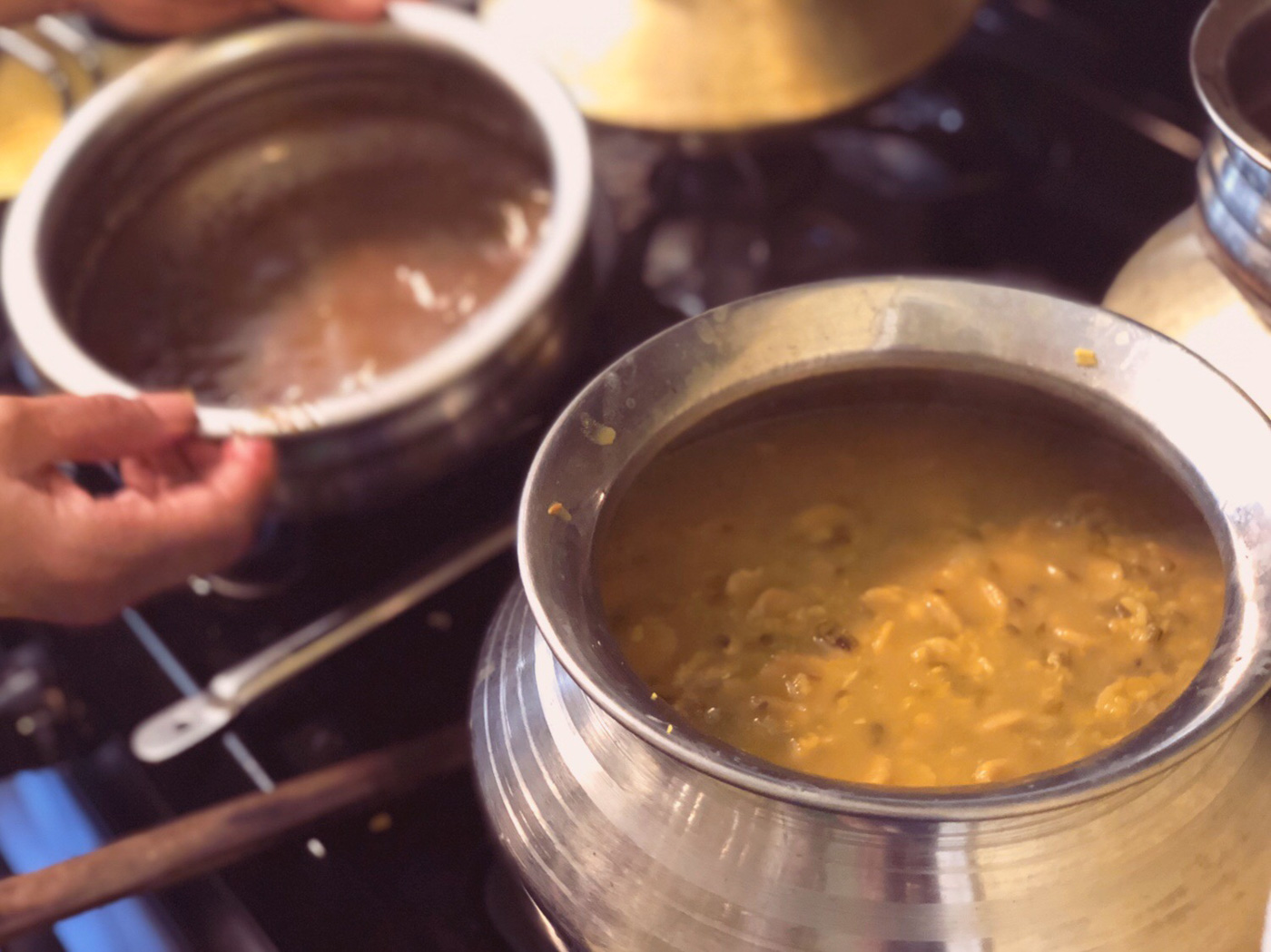
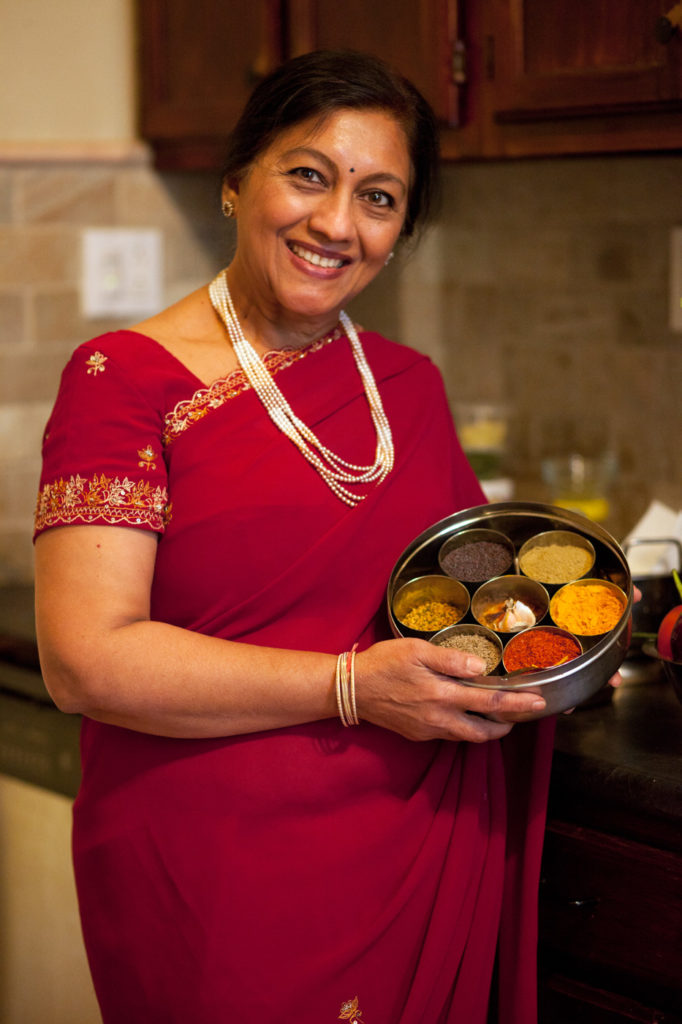
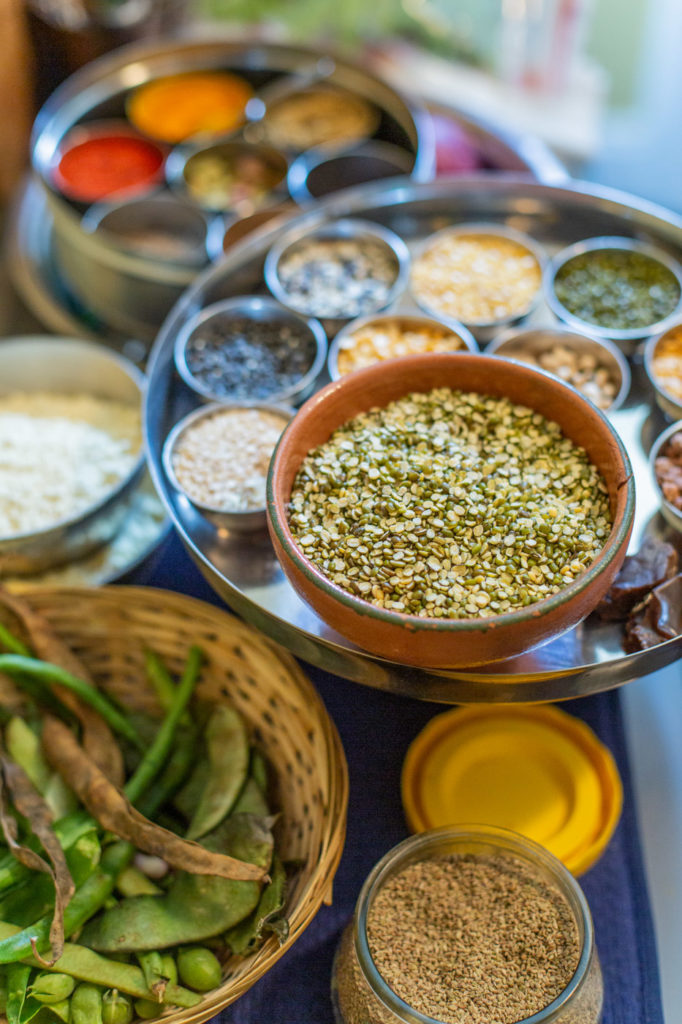
Joshi prepares a wide range of dishes in her classes, drawing from North and South India, including the Gujarati vegetable dish sambhariyu, which she learned from her father. Joshi says she remembers him every time she makes the dish.
“It feels good,” Joshi said, referring to having found a job that provides consistent work and values her skills. Gross hired recipe writers, so Joshi and other instructors didn’t have to measure what they made, and could instead cook as they would. Joshi says this gesture made her feel incredibly comfortable and valued.
“When a student comes to my door … it’s a blessing to me that God gave me this opportunity,” Joshi says. “My heart is thankful to the League of Kitchens.”
Joshi conveys the excitement she feels as well as the breadth of knowledge she’s gained from years of cooking—knowledge she’s shared with countless students over the years, including Stephen Colbert in 2016.
David Plotz, one of the hosts of Slate’s Political Gabfest, took a class at the League of Kitchens and raved about it on the podcast afterward. Colbert, a listener of Gabfest, had a producer reach out to the League of Kitchens, and shortly after, Gross and Joshi found themselves on The Late Show sharing Joshi’s home recipes.
It’s clear how much Joshi loves to cook, both for herself and others, and how much love she pours into the process—a quality Gross seeks in her instructors. After about three hundred interviews and eighty to ninety practical auditions of cooks from all different backgrounds—she says what League of Kitchen instructors have in common is they’ve all said they cook with love.
“I’ve thought a lot about what that means,” Gross says. “And what I think that’s about is really cooking with attention, care and intention.” Gross says all the instructors for the League of Kitchens see cooking as an expression of their creativity. “For all of them, they use food as a way to express love to their families—love and care.”
To further encourage cross-cultural learning, the League of Kitchen’s classes are just comprised of the instructor and her students, with no additional staff. Gross initially found that when she was present in a class, both students and instructors looked to her as an authority figure or translator. Removing herself and other staff from the equation forced both parties to interact with each other more directly, and to more closely get to know each other.
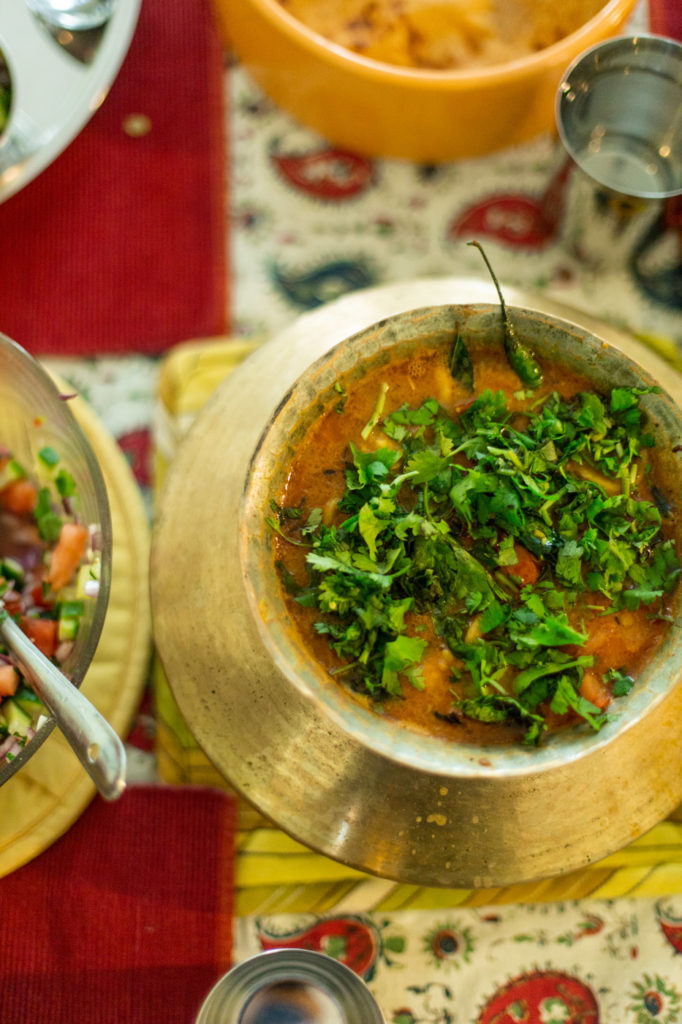
Gross has seen relationships develop, with students coming to view instructors as adopted aunts—or perhaps their own cross-cultural grandmothers. Many stay in touch, send gifts, or invite the instructors over for a meal at their own homes. The unfamiliar becomes familiar, both on an individual level and a cultural level. “That’s actually such a profound experience, from humanizing people all around the world and creating those bridges of connection,” Gross says.
Gross and her organization rely on food to return a fundamental sense of humanity to the conversation, to reinforce the value of immigrants and their experiences, and to prove that the skill of cooking can be central to the idea of family, community and connection—no matter your culture.

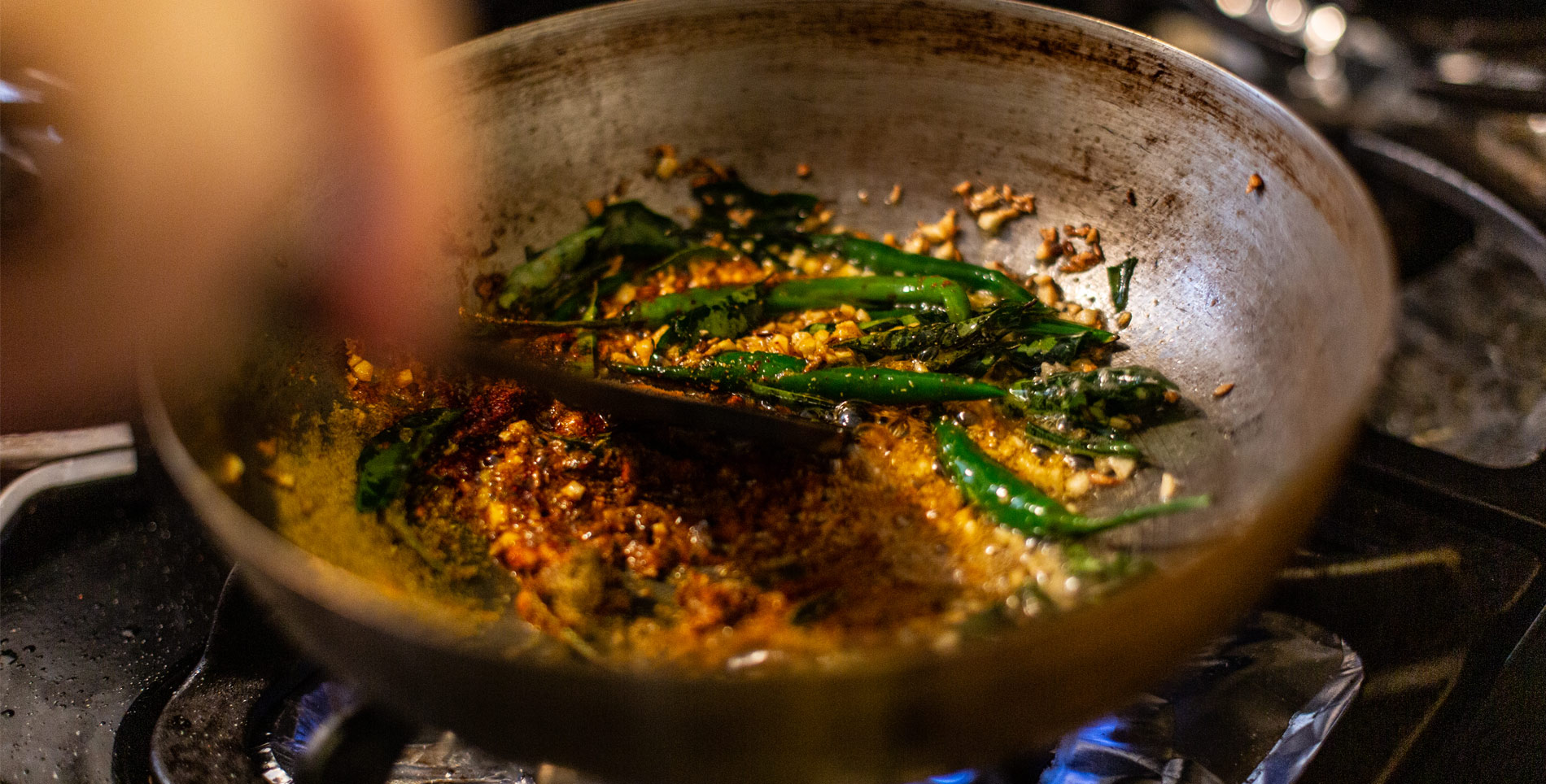

Our comments section is for members only.
Join today to gain exclusive access.